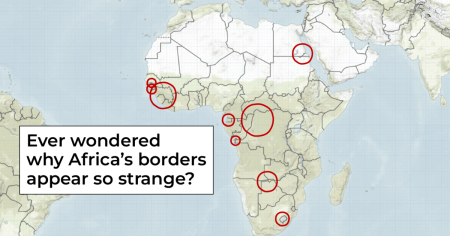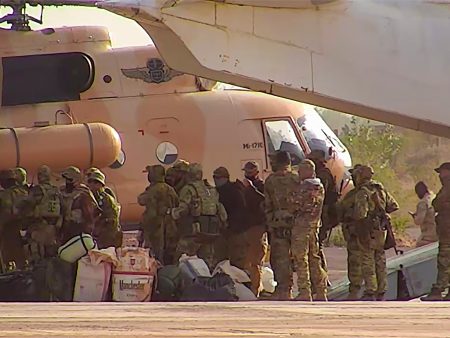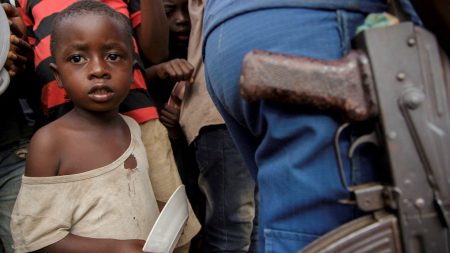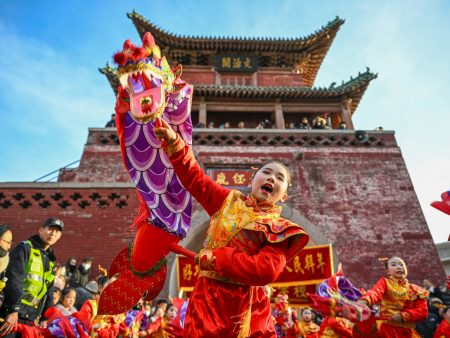Ghana’s Democratic Test Amidst Economic Hardship
Ghana, a West African nation often lauded as a beacon of democratic stability, finds itself at a critical juncture as it heads to the polls for presidential and legislative elections. This electoral contest, taking place against the backdrop of a severe economic crisis, serves as a significant test for the country’s democratic resilience in a region plagued by political instability and military interventions. The election, held on December 7, 2024, features a closely contested race between Vice President Mahamudu Bawumia of the ruling New Patriotic Party (NPP) and former President John Mahama of the opposition National Democratic Congress (NDC). Both candidates hail from the historically marginalized northern region, a shift from previous elections where southern voters held greater sway. This demographic shift highlights the evolving political landscape and the increasing importance of northern constituencies in determining the electoral outcome.
The electoral landscape is dominated by the country’s economic woes, which have become a central theme of the campaigns. Ghana, a major exporter of gold and cocoa, has grappled with a debt default, soaring inflation, and the necessity of a $3 billion bailout from the International Monetary Fund (IMF). This economic downturn has cast a shadow over the incumbent NPP’s performance and provided fertile ground for the opposition’s critique. Bawumia, an economist by training, has defended the government’s record, emphasizing its investments in digitalization, free education, and healthcare programs. He has presented himself as a continuity candidate, promising to build on these initiatives and further transform the nation. Mahama, on the other hand, has positioned himself as the agent of change, pledging to "reset" the economy, create jobs through a "24-hour economy" initiative, and renegotiate aspects of the IMF bailout.
The contest between Bawumia and Mahama represents not only a clash of personalities and policy proposals but also a struggle for the soul of Ghanaian democracy. The NPP seeks an unprecedented third consecutive term, aiming to "break the eight" – a feat no party has achieved in Ghana’s Fourth Republic. This ambition, however, is complicated by the prevailing economic challenges and the public’s perception of the Akufo-Addo administration’s handling of the crisis. The NDC, on the other hand, seeks to capitalize on public discontent and regain the presidency after two unsuccessful attempts. The outcome of the election will determine not only the country’s leadership but also the direction of its economic and social policies in the coming years.
Beyond the economic concerns, other critical issues have emerged in the electoral discourse. The spread of illegal gold mining, known as "galamsey," has devastated the environment, poisoned rivers, and threatened cocoa farmland, a vital source of export revenue. Both candidates have addressed this issue, with varying approaches to curbing the practice and mitigating its impact. Furthermore, the increasing risk of spillover from conflicts in neighboring Niger and Burkina Faso, both under military rule following coups, poses a security challenge for Ghana. The candidates’ strategies for addressing these regional security threats have also become a point of contention.
Ghana’s democratic credentials, while generally strong, have faced recent challenges. An incident in 2021, during the inauguration of parliament, saw a physical altercation between members of the NPP and NDC, requiring military intervention to restore order. This episode underscored the underlying tensions within the political system and the potential for disruption. The upcoming elections, therefore, carry a significant weight, not only for Ghana’s domestic stability but also for its standing as a democratic exemplar in a region grappling with political turmoil.
The election outcome will have far-reaching implications for Ghana’s future trajectory. The chosen leader will face the daunting task of navigating the complex economic landscape, addressing critical environmental and security challenges, and upholding the principles of democratic governance. The world will be watching closely as Ghana, once again, stands at a crossroads, its democratic resilience and stability under scrutiny. The peaceful and transparent conduct of the elections will be crucial not only for the legitimacy of the outcome but also for reinforcing Ghana’s reputation as a beacon of democracy in West Africa. The hope remains that the electoral process will further strengthen the country’s democratic institutions and pave the way for a more prosperous and stable future.










